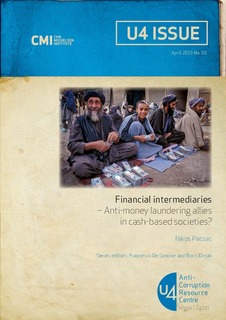| dc.contributor.author | Messick, Richard E. | |
| dc.date.accessioned | 2018-01-04T08:21:01Z | |
| dc.date.available | 2018-01-04T08:21:01Z | |
| dc.date.issued | 2015-08-01 | |
| dc.identifier | oai:www.cmi.no:5847 | |
| dc.identifier.citation | Bergen: Chr. Michelsen Institute (U4 Brief 2015:10) 4 p. | |
| dc.identifier.uri | http://hdl.handle.net/11250/2475166 | |
| dc.description.abstract | Long delays in the resolution of court cases are a common problem in both developing and developed countries and impede anti-corruption efforts. Technical solutions such as hiring more judges and reforming cumbersome procedures, when used alone, have proved ineffective. Political economy analysis can reveal how the interests and incentives of judges, lawyers, clerks, and litigants interact to create delays, providing a basis for more effective reforms. But the success of such reforms depends on support from senior judges and pressure from civil society. | |
| dc.language.iso | eng | |
| dc.publisher | Chr. Michelsen Institute | |
| dc.relation | U4 Brief | |
| dc.relation | 2015:10 | |
| dc.relation.ispartof | U4 Brief | |
| dc.relation.ispartofseries | U4 Brief 2015:10 | |
| dc.relation.uri | https://www.cmi.no/publications/5847-using-political-economy-analysis-to-address-court | |
| dc.subject | Civil Society | |
| dc.subject | Courts | |
| dc.subject | Justice | |
| dc.subject | Political Economy | |
| dc.subject | Corruption | |
| dc.subject | India | |
| dc.subject | Philippines | |
| dc.title | Uncorking the bottlenecks: Using political economy analysis to address court delay | |
| dc.type | Report | |
